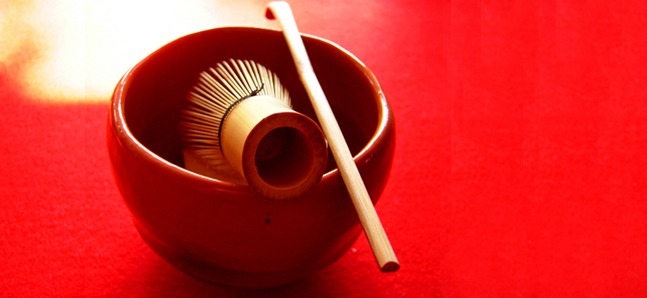
Posted: Tue Feb 09 2010
January’s Coming-of-Age Day celebrates those who’ve turned twenty the previous year. Whether a ‘newly-minted’ adult or not, there are a few fields of study suited to both novices and those looking to improve their knowledge. Listed below are some ideal classes for beginners as well as more challenging pursuits. Whichever ‘discipline’ you choose to follow, you’ll no doubt find aspects of it applicable to your everyday adult life.
Wine
Amongst other factors, one of the main points when appreciating wine is to understand its geographical history, culture and climate. It doesn’t stop there, however; to become a true wine connoisseur, you’ll also need to learn which foods each wine is best served with as well as other characteristics. Don’t know where to start? L’école du Vin’s free 1-day wine tasting seminar aims at helping beginners further their enjoyment of wine. Taught by full time wine tasting experts, it's a lesson in which you’re sure to learn something new.
- L’école du Vin, Free 1 day Wine Tasting Seminar
- Address: Suzuki Building 1F, 3-21-14 Higashi, Shibuya, Tokyo
- Telephone: (0120)844 055
- When: See the website or call for future dates and reservations
- Admission: Free
- Aimed at: Absolute beginners
- Website: www.duvin.jp/
Sake (Japanese rice wine)
If you know what you’re talking about when it comes to sake, you’ll no doubt enjoy comparing a multitude of different varieties with like-minded souls. Ginza‘s Fukumitsuya stocks traditional Kanazawa specialty rice wines and allows tasting at its standing bar, located on the first floor. Don’t miss the free tasting sessions held on Saturdays and Sundays.
- Fukumitsuya Sake Shop, Ginza
- Address: 1F, 5-5-8 Ginza, Chuo, Tokyo
- Telephone: (03)3569 2291
- Open: 11am-9pm, Sun, nat. holidays until 8pm
- Website: www.fukumitsuya.co.jp/
Sutra Copying
Eager to get in on the next big thing after yoga? Head over to a class at the Yakushiji Tokyo Branch Temple to take part in some Japanese sutra copying— an activity that’s reported to be gaining popularity amongst the city’s women due to its relaxing benefits. Reservations aren’t necessary as classes take place every day. Plus, it doesn’t really matter if your writing style is actually any good or not. Simply let the quiet atmosphere dissolve your worldly thoughts as you concentrate on copying out one of the Wisdom (Hannashin) Sutra Scrolls.
- Yakushiji Tokyo Branch Temple
- Address: 5-15-17 Higashi-Gotanda, Shinagawa, Tokyo
- Telephone: (03)3443 1620
- Admission: Participants are asked to make an offering depending on the type of sutra (Hannashin (Wisdom) Sutra Scroll ¥2,000, Kusushi Sutra Scroll ¥4,000, Yuishikisanjuuju Sutra Scroll ¥5,000)
- When: Daily 9am-5pm
- Reservations: Not required
- Website: www.yakushiji.or.jp/
Pottery
Serving guests with tableware you’ve made yourself is one way to both impress them and create a great conversation starter. In classes offered by Daikanyama’s Tobou Terra, participants use either a manual or an electric pottery wheel to make one of a number of pieces such as a tea cup, small bowl, ceremonial green tea bowl, mug, salad bowl, lamp shade or earthenware pot. If there’s something in particular you’d like to make, you’ll be pleased to hear that they’re flexible enough to listen to just about any request.
- Tobou Terra Daikanyama
- Address: Hillside Terrace C1, 29-10 Sarugakucho, Shibuya, Tokyo
- Telephone: (03)3464 6877
- Admission: ¥3,000 plus a variable fee for firing (approx ¥700 for a teacup or ¥900 for a small bowl)
- Duration: 1 hour
- Reservations should be made by telephone. Note: Please specify a preferred date and time, the number of participants, and whether you would like to use a manual or an electric pottery wheel.
- Website: www.tobou-terra.com/
Tea Ceremony
Learning about Japanese tea ceremony etiquette is one area where you might even be able to surpass your Japanese peers. Shinjuku’s Urasenke Wood Sadoh School offers free tea ceremony classes for those with no previous experience. Participants learn basic etiquette for serving and consuming tea and confectionary from young instructors. Plus, some of the skills taught here —such as bowing and how to hold a brush — are relevant not only to the tea ceremony, but can also be applied to everyday activities.
- Urasenke Wood Sadoh School
- Address: Four Seasons Annex Building 4F, 2-4-6 Shinjuku, Shinjuku, Tokyo
- Telephone: (03)3341 8846
- Admission: Free
- When: Every Tuesday (excluding nat. and school holidays), from 7pm and 8pm (each session lasts approximately 1 hour)
- Aimed at: Complete beginners
- Things to bring along: A change of socks (can be lent to those without)
- Reservations should be made by telephone
- Website: www.wood-sadoh.co.jp/
Traditional incense-smelling
As aromatherapy becomes more widespread, associated limelight also falls on the traditional Japanese art of the incense-smelling ceremony. In its most basic form, the practice involves burning naturally aromatic woods, such as sandalwood, and enjoying their fragrances. However, the Japanese tradition is to specifically choose aromatic woods in order to express themes or subjects from Japanese tanka or fables. Once a month, Azabu Kogado opens a beginners’ class entitled ‘Experience Incense.’ Participants are invited to experience a blend of aromatic fragrances that have been meticulously chosen to conjure up images from the renowned Japanese fable ‘The Tale of Genji.’
- Azabu Kogado ‘Experience Incense’
- Address: 3-3-5 Azabu-juban, Minato, Tokyo
- Telephone: (03)3452 0351
- Admission: ¥3,000 (includes all materials and a souvenir)
- When: Sat Feb 20; 10am-12noon
- Aimed at: Absolute beginners
- Reservations should be made by telephone
- Website: www.kogado.co.jp/
Otona no tashinami plan (Etiquette for adults plan)
When it comes to the business scene, knowing the correct dining etiquette can be key. At Keio Plaza’s Soujuan restaurant, you can choose to learn more about general dining etiquette, Japanese cuisine or sake, and have a professional from your chosen discipline instruct you personally. What a chance to further your enjoyment of food, through better appreciation of the correct etiquette that traditionally accompanies it.
- Keio Plaza Hotel 2F, Traditional Kaiseki Japanese cuisine at Soujuan restaurant
- Address: 2-2-1 Nishi-Shinjuku, Shinjuku, Tokyo
- Telephone: Keio Plaza Hotel restaurant reservations on (03)3344-0111
- Admission: Lunch or dinner ¥12,000 per person (incl: lecture, food, drink, tax and service charge)
- Website: www.keioplaza.com/
Related articles
・Japan’s world class sommeliers
La Tour D'Argent Tokyo offers the best service in the Asia-Oceania region
・Tokyo's best souvenirs
Time Out’s guide to the perfect souvenir-hunting
・Traditional Japanese theatre: overview
Tokyo's stages bring on the best
Tags:
Tweets
- About Us |
- Work for Time Out |
- Send us info |
- Advertising |
- Mobile edition |
- Terms & Conditions |
- Privacy policy |
- Contact Us
Copyright © 2014 Time Out Tokyo











1 comment Add a comment
Keep posting stuff like this i really like it
Add your comment